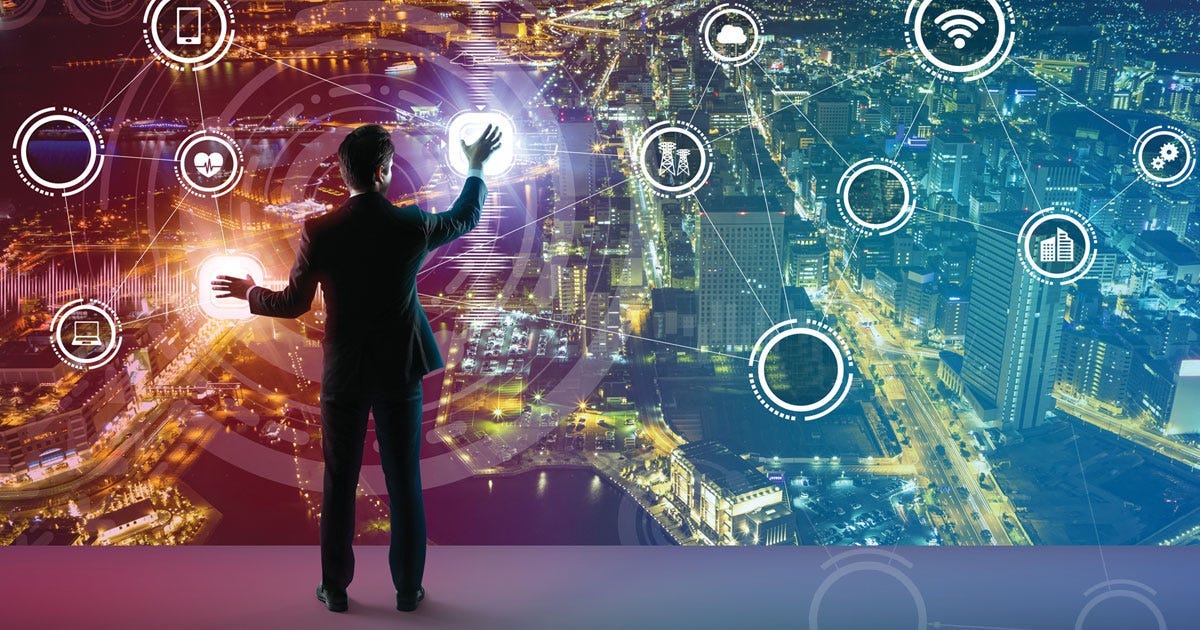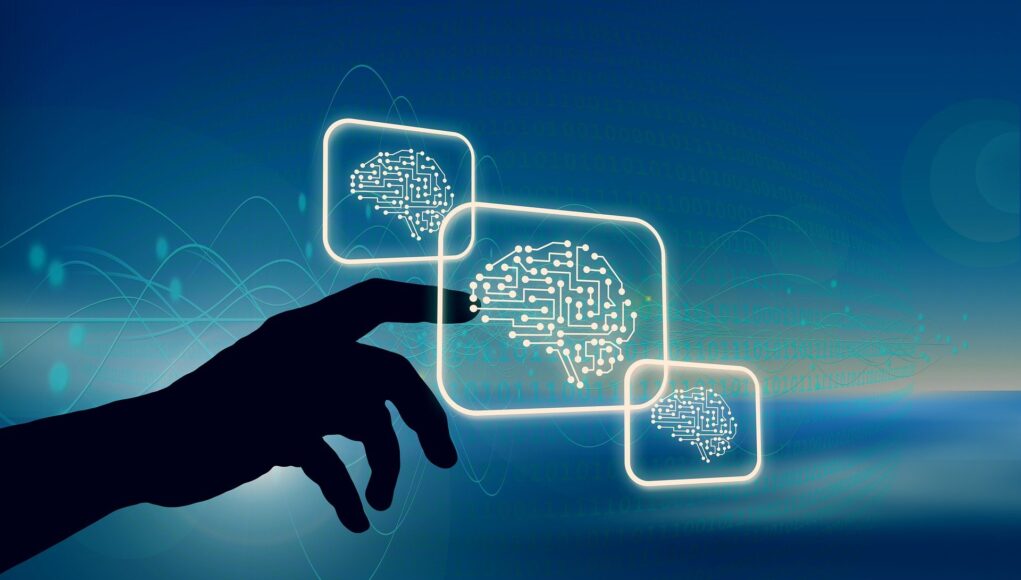AI Meaning in Technology: Unveiling Future Trends. In technology, “AI” stands for Artificial Intelligence. AI refers to machines designed to perform tasks that typically require human intelligence.
Artificial Intelligence (AI) has become a driving force behind technological innovation and transformation. Its applications span from simple task automation to complex problem-solving across various industries such as healthcare, finance, and transportation. AI systems learn and adapt through data analysis, pattern recognition, and predictive modeling, aiming to mimic cognitive functions like learning and problem-solving.
This technology not only enhances efficiency and accuracy but also opens up new possibilities for advancements in robotics, natural language processing, and machine learning. The integration of AI into everyday technology is rapidly shaping the future, offering businesses the opportunity to harness its potential for competitive advantage and improving the quality of life through smarter, more responsive services.

The Essence Of Ai In Modern Technology
Imagine a world where machines think like us. That’s where artificial intelligence, or AI, comes in. It shapes how we live, work, and play in modern tech. Let’s explore the deep roots and traits of AI systems and why they matter.
The Foundations Of Artificial Intelligence
AI didn’t just happen overnight. It’s built on years of research. Computers now mimic human thinking thanks to these foundations:
- Machine Learning: Machines learn from data to make decisions.
- Neural Networks: They copy our brain’s way of thinking.
- Natural Language Processing (NLP): Computers understand and speak our language.
- Robotics: AI drives robots to act on tasks.
This mix lets AI grow and change with us, making tech smarter every day.
Key Characteristics Of Ai Systems
Here’s what sets AI apart. These traits make it a game-changer in tech:
| AI Trait | What It Means |
|---|---|
| Adaptive Learning | AI learns from new info without human help. |
| Problem-Solving | It finds solutions to complex issues. |
| Automation | AI works on tasks without getting tired. |
| Accuracy | With AI, mistakes drop and precision rises. |
These features help AI transform industries by doing things faster and better than us. With its help, the future looks bright and smart.
Ai Innovations Transforming Industries
Artificial Intelligence (AI) stands at the forefront of innovation across industries. Its transformative power reshapes how we approach problems and create solutions. Industries far and wide experience a seismic shift as cutting-edge AI integrates into their core operations. From healthcare to manufacturing, AI acts as the catalyst for extraordinary advancements.
Healthcare Breakthroughs With Ai
The healthcare sector witnesses a remarkable evolution thanks to AI technology. AI-driven solutions dramatically improve patient outcomes and revolutionize treatment protocols.
- AI algorithms predict and prevent diseases.
- AI-enabled robots assist complex surgeries.
- Virtual health assistants offer 24/7 support.
Ai Revolution In Transportation
AI redefines safety and efficiency in the transportation industry. Autonomous vehicles and intelligent traffic systems spotlight the era of AI integration.
| Technology | Impact |
|---|---|
| Self-driving Cars | Reduces accidents and optimizes traffic flow |
| AI-based Traffic Management | Minimizes congestion and improves travel times |
Smart Manufacturing With Ai Automation
Manufacturing floors grow smarter with AI automation. Enhanced efficiency, quality control, and predictive maintenance define the new industrial landscape. Here’s how AI transforms this sector:
- Robotic assembly lines increase production speed.
- Machine learning optimizes supply chains.
- Sensors predict equipment failures before they happen.
The Evolution Of Ai: From Logic To Learning
The journey of artificial intelligence (AI) is a tale of innovation and wonder. From the realm of science fiction to the reality of daily life, AI has undergone a profound transformation. This evolution has reshaped the way technology interacts with the world. Through three pivotal moments in AI history, we’ve witnessed an unparalleled shift in what machines can accomplish.
Early Ai Concepts And Developments
AI’s story began with foundational concepts focusing on logic-based operations. Early AI sought to imitate human reasoning through rules and decision trees. These systems aimed to solve puzzles and prove theorems, laying the groundwork for modern AI. Pioneers like Alan Turing and John McCarthy recognized AI’s potential, pioneering the field.
The Advent Of Machine Learning
A significant leap forward came with machine learning (ML). ML changed the AI landscape by shifting from hardcoded logic to algorithms that learn from data. This allowed AI to improve over time without explicit programming. With ML, computers began recognizing patterns, making predictions, and enhancing decision-making.
- Evolution from static to dynamic systems
- Introduction of neural networks
- AI’s growth through data analysis
Deep Learning: A Paradigm Shift
Deep Learning propelled AI into a new era. This form of advanced ML uses multi-layered neural networks to simulate human cognition. It excels at processing vast amounts of data, learning complex patterns, and performing tasks like image and speech recognition. Notable breakthroughs in this area have led to its application across diverse industries, from healthcare to finance.
| Year | Advancement |
|---|---|
| 1980s | Backpropagation algorithms |
| 2006 | Renaissance of neural networks |
| 2010s | AI beats human performance in various tasks |
Ai’s Impact On Job Markets And Economy
The advent of Artificial Intelligence (AI) is not just a leap in technology—it’s a force capable of reshaping job markets and propelling economic growth. In this exploration, we’ll delve into how AI influences jobs and its implications on the global economy.
Job Displacement And Creation
AI’s rapid integration into various sectors does stir worries about job displacement. Automation can replace repetitive or dangerous tasks, affecting certain job markets.
- Manufacturing: Automation may decrease manual jobs.
- Transportation: Self-driving technology could impact driving roles.
Yet, AI also fosters new job opportunities. It demands skilled professionals to build, maintain, and improve AI systems. Sectors like AI development, data analysis, and cybersecurity are growing, opening paths to new careers.
- Data scientists are needed to interpret AI-generated data.
- AI ethicists emerge to address moral aspects of AI.
Ai’s Contribution To Gdp Growth
AI’s presence boosts productivity and innovation. Companies harnessing AI can personalize experiences, optimize operations, and create value. This translates to higher GDP gains for economies tapping into AI’s potential.
| Sector | Contribution |
|---|---|
| Healthcare | Improves diagnostics, patient care. |
| Finance | Enhances risk assessment, fraud detection. |
Studies suggest that AI could boost global GDP by up to 14% by 2030. That’s an unprecedented leap, attributable to AI’s innovative applications across various industries.
Ethical Considerations And Ai Governance
AI technology reshapes our world, bringing new opportunities and challenges alike. One critical aspect of this tech revolution revolves around ethical considerations and AI governance. It’s not just about creating smart machines, but also ensuring they operate within a moral and legal framework. In this discussion, we delve into the implications of AI on privacy, bias, and how the global community addresses AI regulation.
Privacy And Bias Concerns
Privacy and bias stand as major concerns in AI. AI systems collect massive amounts of data, risking personal privacy. There’s also the threat of AI making decisions based on biased data, leading to unfair outcomes. This is crucial to address as AI integrates deeper into our lives.
- User data protection ensures private information stays safe.
- Audits on AI algorithms help detect and remove biases.
Developing Ethical Ai Frameworks
Creating ethical AI frameworks involves diverse stakeholders. It is about embedding values into AI systems from the ground up. These frameworks guide AI development to benefit all, without causing harm or excluding any group.
- Identify core values and principles for ethical AI.
- Implement guidelines for responsible AI design and use.
Global Ai Policy And Regulation Standpoints
The approach to AI regulation varies globally. Countries develop their policies to reflect cultural, legal, and economic contexts. International cooperation is key to creating standards that uphold human rights and promote innovation universally.
| Region | Policy Focus |
|---|---|
| EU | Privacy, Transparency |
| US | Innovation, Security |
| China | State Control, Development |
Peering Into The Ai Crystal Ball: What’s Next?
As we gaze into the evolving world of artificial intelligence (AI), it’s clear that advancements in this technology hold the potential to transform our future. With each leap forward, AI continues to challenge the boundaries of what’s possible. Trying to predict the next big breakthrough in AI can be as complex as the algorithms that power it. Still, by looking at current trends and research, we can make educated guesses about the direction AI is heading.
Predictions For Ai Advancements
- Quantum computing will scale AI’s problem-solving abilities.
- AI will achieve better natural language processing for smoother human-AI interactions.
- Self-learning systems will become more autonomous, reducing the need for human input.
- Advances in predictive analytics will make foreseeing consumer behavior more accurate.
- Integration of AI-based personalization will revolutionize user experiences online.
Potential For Ai In Solving Global Challenges
Artificial intelligence isn’t just about better gadgets and smart assistants; it’s a tool with the immense potential to tackle some of our planet’s most pressing issues.
| Global Challenge | AI’s Role |
|---|---|
| Climate Change | AI can analyze climate patterns and help in developing more sustainable practices. |
| Healthcare | Through predictive diagnostics, AI is enabling early detection and treatment of diseases. |
| Education | AI tools can provide personalized learning experiences, adapting to each student’s needs. |
| Food Security | AI can optimize agricultural yields and monitor crop health, leading to increased food production. |
| Transportation | Self-driving technology powered by AI promises safer and more efficient traffic systems. |
Frequently Asked Questions On Al Meaning In Technology
What Does ‘ai’ Stand For In Technology?
AI stands for Artificial Intelligence. It refers to machines that mimic cognitive functions like learning and problem-solving.
How Is Ai Used In Everyday Technology?
AI is used in technology to enhance user experiences. Examples include personalized recommendations, voice assistants, and autonomous cars.
What Are The Types Of Ai In Technology?
There are two main types of AI: Narrow or Weak AI, which is designed for specific tasks, and General or Strong AI, which has broader capabilities.
Can Ai Improve Technology Efficiency?
Yes, AI can significantly improve efficiency. It optimizes operations, reduces errors, and automates repetitive tasks in various technologies.
Navigating the intricacies of AI reveals its profound impact across industries. It fosters innovation, drives efficiency, and reshapes our interaction with technology. As we continue to embrace AI’s capabilities, we unlock new horizons and enrich the human experience. Embracing this evolution is key to technological advancement and success in the digital era.





